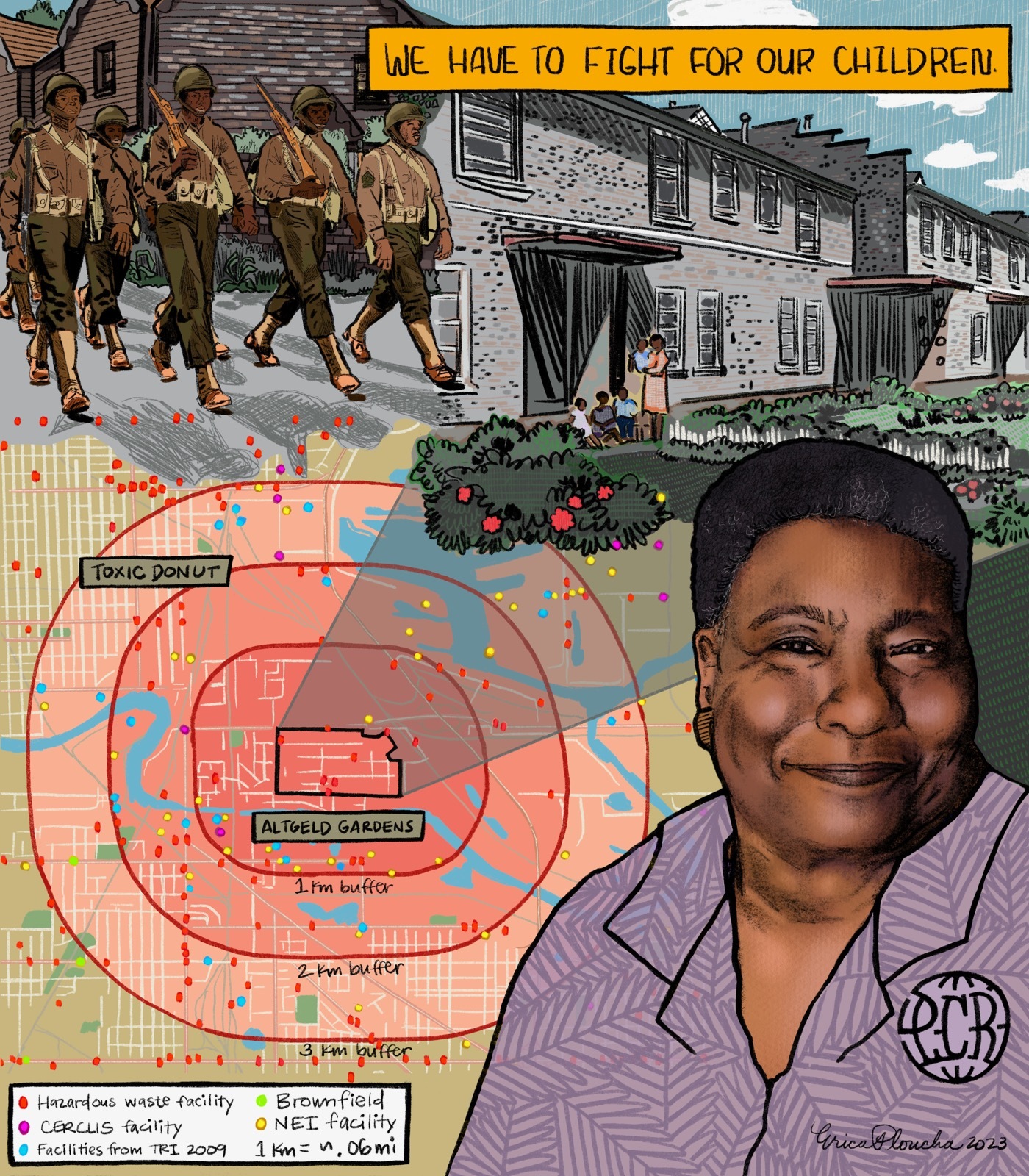Rise Up for Environmental Justice
Our Focus Areas
-
PCR is helping community members receive equitable treatment with housing issues. We are promoting reforms for transparency within the Chicago Housing Authority and advocating for city policies that will preserve and expand affordable housing across Chicago. Our policy and organizing work also focuses on resourcing energy and water efficiency, racial equity, and fair hiring practices in low-income housing.
We also provide community education and technical assistance to help folks access key energy efficiency and solar programs, which make houses and apartments more affordable, comfortable, and environmentally sustainable. Additionally, PCR is leading efforts to ensure public housing residents also enjoy the benefits of solar.
-
PCR supports efforts to bring investment to the far south side of Chicago, but we're focused on making sure benefits are distributed and implemented in ways that prioritizes residents' needs, not profit. Good jobs, access to healthcare, quality education and basic services are important indicators of fair economic development.
With a number of development projects coming to our neighborhood including the CTA Redline Extension and riverfront revitalization projects, PCR is working to ensure these developments benefit community members rather than displace them. We’re organizing to leverage opportunities, including historic designation of Altgeld Gardens, that will secure needed resources including access to fresh food, youth programming and jobs.
-
We are adamant that communities on the frontlines of the environmental and climate crisis must now claim a place on the frontlines of the growing clean energy economy in Illinois and beyond. Our communities have clear ideas about how to ensure environmental and racial justice for all. We must prioritize safety and affordability when it comes to energy and housing, and promote economic equity through just transition that prioritizes workforce development for rural, poor, black and brown communities. We must create healthier living conditions by improving air, land and water quality. We recognize mental health and physical health are one in the same. Through all of this, we must build leaders in our community and build a movement that is, in itself, a healing force for our communities.
The Toxic Donut
On the southeast side of Chicago, surrounded on all sides by landfills, industrial facilities and polluted waterways, are communities like Altgeld Gardens. The late Hazel Johnson, the Mother of the Environmental Justice Movement, labelled this area the "toxic donut," a name which gained widespread notoriety and shed light on the connection between industrial pollution and negative health outcomes in frontline communities like Altgeld Gardens.
Report a Polluter
Bad smell, smoggy air, brown water? Report the issue and we'll get in touch to connect you with resources.
Toxic tours
People for Community Recovery offers toxic tours of the Lake Calumet Industrial Area, exploring the surrounding landfills, industrial facilities, waterways, and their proximity of residential communities to this area. We charge a nominal fee to conduct these tours.
Our Milestones
PCR’s Beginning
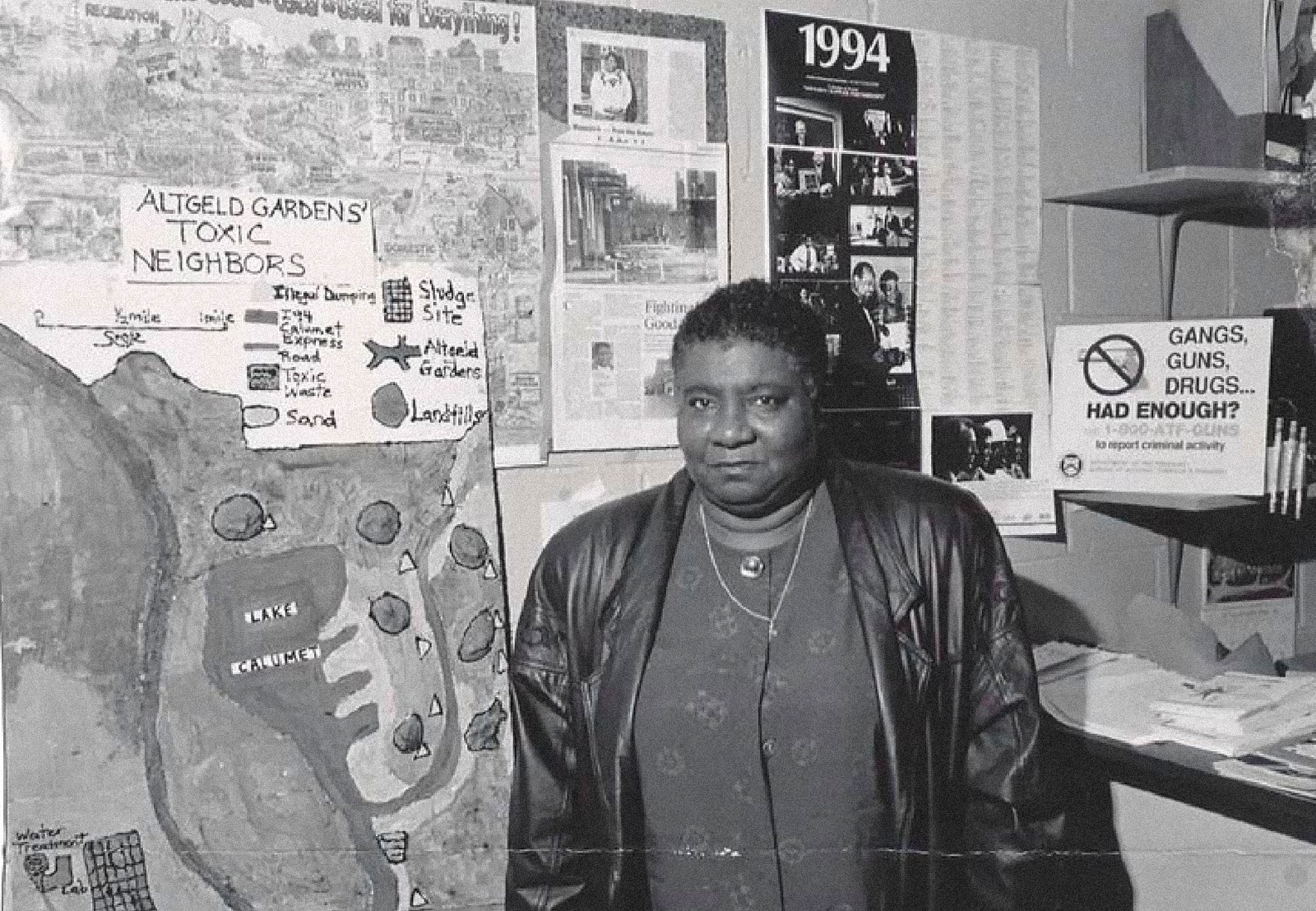
Altgeld Gardens resident Hazel Johnson started People for Community Recovery in 1979 to address tenants rights and environmental issues in her community. She soon learned that Atlgeld and neighboring Calumet City had the highest cancer rates in the area. Having lost her husband and several neighbors to cancer, this discovery put Hazel on a journey that would lead her to conduct her own community health study and learn about the many toxic industrial and waste sites surrounding her neighborhood. She would develop an understanding not just of the connection between environmental pollution and human health, but also of the ways in which environmental issues connect deeply with race, class and gender.
Direct Action Prevents More Hazardous Waste and Landfills in Chicago
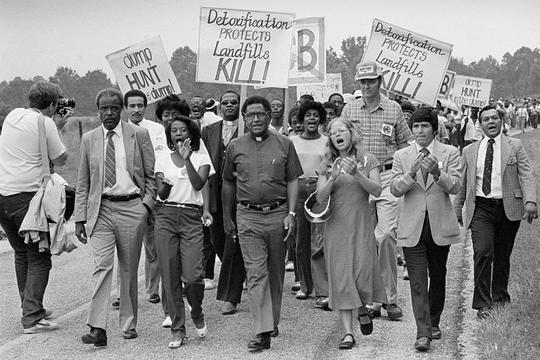
PCR helped form Citizens United to Reclaim the Environment (CURE), a coalition of five grassroots groups from Chicago’s southeast side. Despite years of talks between city and state officials to stop more landfills from coming to the neighborhood and broad media coverage of the issue, a permit was issued for additional toxic waste storage in the neighborhood. On July 28, 1987, residents took direct action. Demonstrators gathered at the entrance to the new landfill and blocked entry, turning away 57 trucks containing hazardous waste for more than five hours. Seventeen protesters, including Hazel Johnosn, were arrested. The action stopped the landfill from opening and led to a moratorium on additional sites in the city.
Clean Water for Maryland Manor
PCR claimed its first major environmental justice victory in 1985, when it successfully lobbied the city to install water and sewer lines in Maryland Manor, a small development of elderly and low-income Black residents adjacent to Altgeld Gardens. Developed in the 1960s, the community was never connected to the city’s water and sewage system, despite the fact that residents paid taxes for these services. The campaign began after PCR helped secure testing of the well water. That testing showed it was contaminated with cyanide, benzine, touline, lead, sulfur, fecal coliform, and other compounds.
The First Federal Action on Environmental Justice and Recognition of PCR
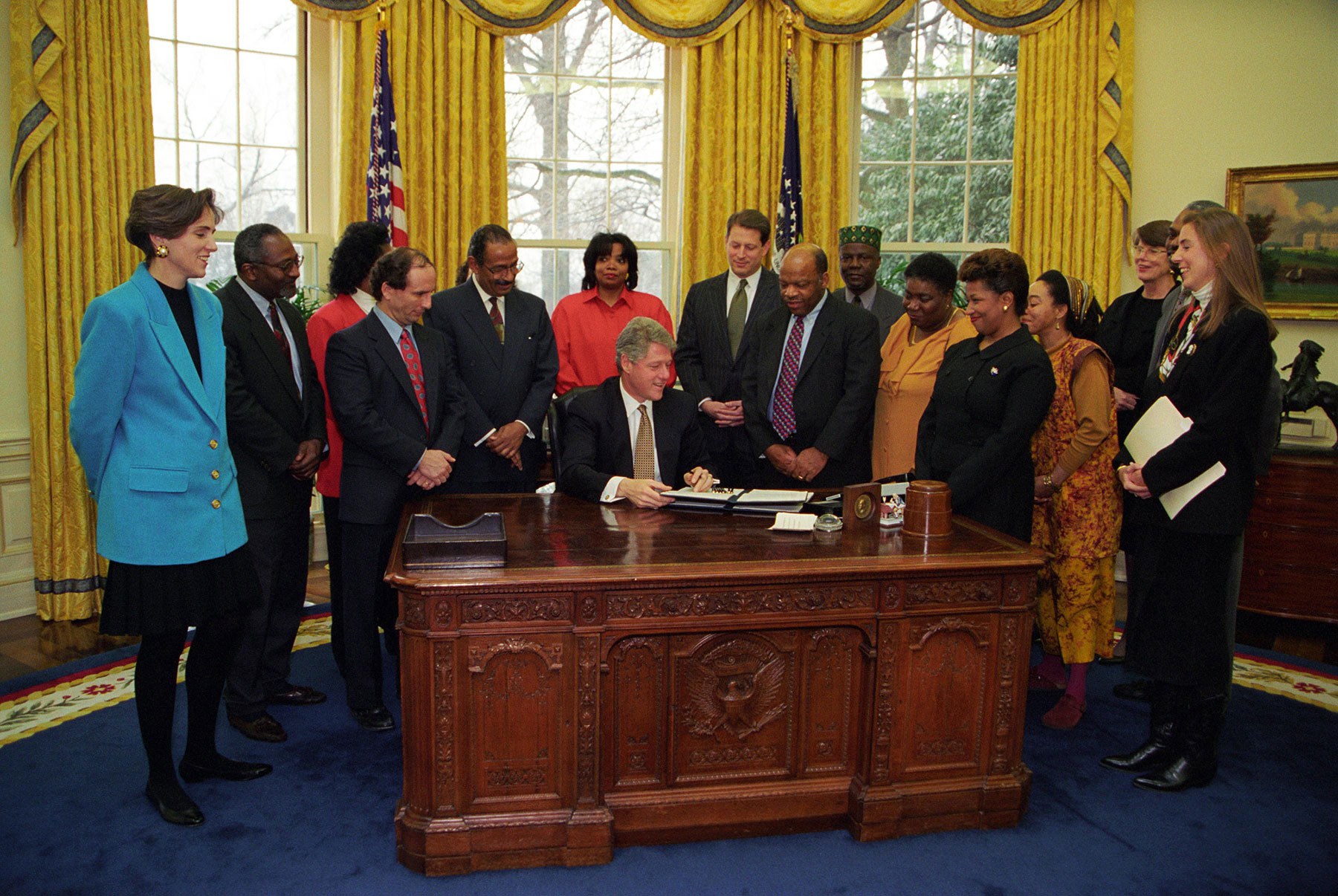
The environmental justice movement secured a landmark victory on February 11, 1994, when President Clinton issued Executive Order 12898, “Federal Actions to Address Environmental Justice in Minority Populations and Low-Income Populations.” Informed by the advocacy of EJ leaders including Hazel Johnson, the legislation established an interagency working group to integrate environmental justice principles throughout 17 government agencies, incorporated environmental justice as a component of decision-making for environmental policy, and created an environmental justice small grants program to fund community work. Hazel was present for the bill signing and PCR would go on to participate in many of the initiatives stemming from the order. In 1996, President Clinton recognized PCR as one of the nation’s top 100 environmental organizations. PCR was the only Black-run grassroots organization among the groups that were recognized.
Community Based Remediation Trainings
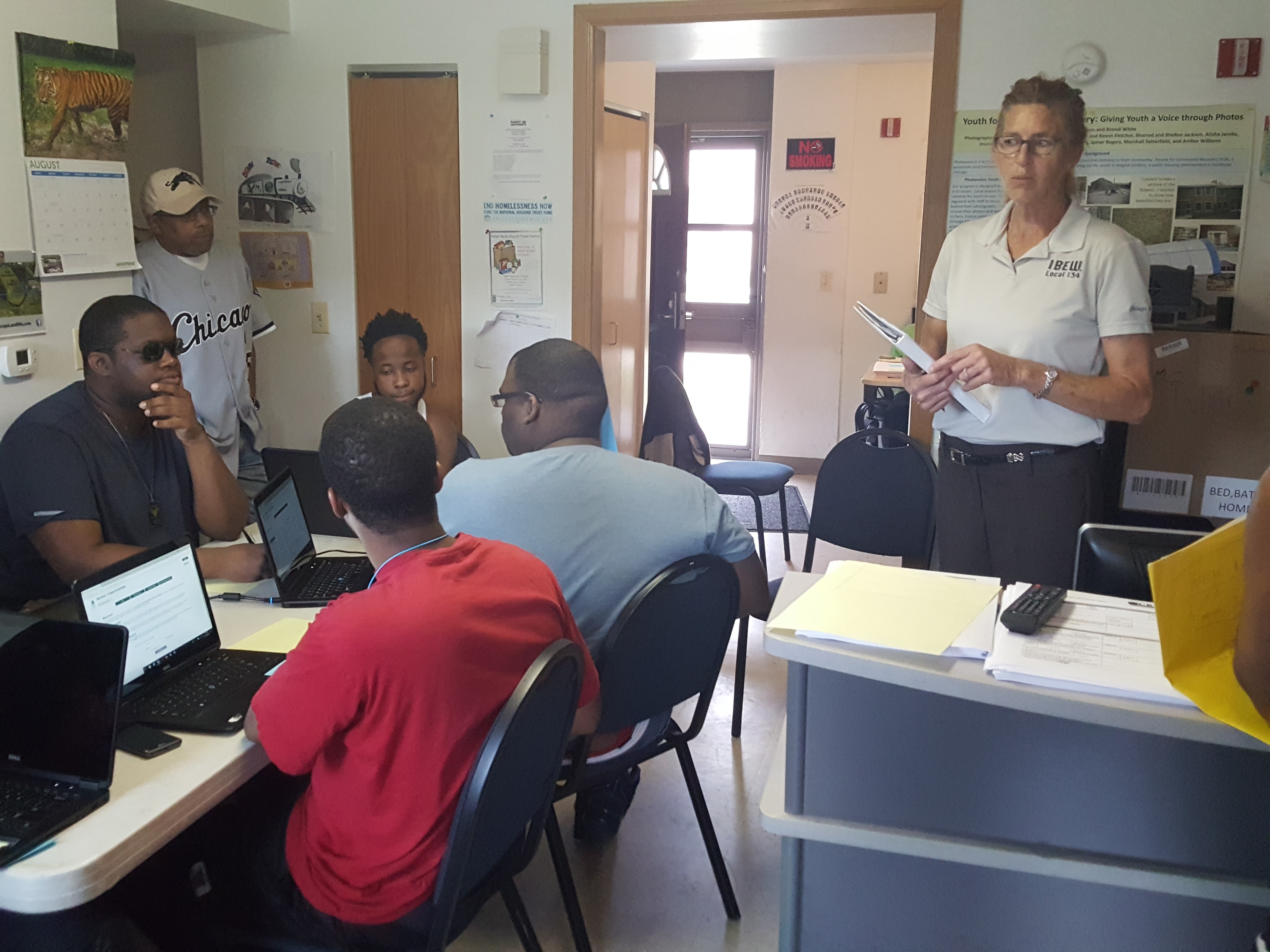
In 1995, PCR launched the first community-based environmental training program to create opportunities specifically for youth living in environmental justice communities. PCR trained and certified more than 200 young people in underground storage tank removal and lead and asbestos abatement. PCR later partnered with the Coalition of Black Trade Unionists and the International Chemical Workers for Health and Safety Training Center to train 624 local residents over the next decade. Trainees achieved certifications in HAZWOPER (Hazardous Waste Operations and Emergency Response), OSHA Safety and Mold Remediation. Upon completing the program, they worked locally. Several graduates started their own businesses after major cleanup efforts in Altgeld were complete.
Resident Education (and Reparations) on Lead
PCR received a grant from the U.S. EPA and HUD to launch the Residents Education About Lead (REAL) project, the first EPA-sponsored lead education and intervention program in the country. Partnering with CHA and the City of Chicago Department of Health, PCR canvassed CHA communities and provided education on the dangers of lead exposure, conducted informal lead inspections and organized lead testing and coordinated ongoing financial assistance and medical resources for children living with lead poisoning. Altgeld residents were hired and trained as paid community educators to implement the program, successfully integrating job training and employment opportunities with environmental activism.
Forcing Accountability and Cleanup within the Chicago Housing Authority
In 1999, after a community led campaign, the Chicago Housing Authority finally took action to remove PCB-contaminated soil from the community. In addition to securing the cleanup, PCR also led efforts to ensure the contractor overseeing the project would train and hire local residents on the project.
A Bright New Day: Solar on The South Side

As environmental cleanup needs waned in our community, PCR shifted our focus to help train residents to access job opportunities in the state’s growing solar energy economy. In 2018, PCR developed a comprehensive solar training curriculum for the Chicago Housing Authority intended to prepare CHA residents to work on local solar projects. PCR partnered with the International Brotherhood of Electrical Workers to train 25 residents in solar installation.
Putting Chicago on an Equitable Path to 100% Clean Energy
PCR served on the leadership team for the Ready for 100 Coalition, which created a robust and successful campaign to move Chicago toward a 100 percent clean energy future. In April 2019, the city council passed a resolution to power all of Chicago’s buildings with clean and renewable energy by 2035. The resolution specifically calls out the historic leadership of environmental justice communities across Chicago and PCR-founder Hazel Johnson’s trailblazing EJ work in Chicago and beyond. In 2020 and 2021, PCR engaged hundreds of residents in events and listening sessions to get community feedback on the best ways to reach this comprehensive goal. In 2021, PCR was invited to join the city’s decarbonization task force, and the city’s Environmental Equity Working Group to advise Mayor Lori Lightfoot on how best to transition municipal buildings to clean energy in a just and equitable way.
Energy Efficiency and Affordability
For more than a decade, PCR helped thousands of residents access financial assistance with light and gas bills as a community site in partnership with CEDA. In 2020, PCR negotiated with ComEd over their four-year energy plan to secure $50 million in additional funding for low-income energy efficiency programs, to help low-income residents access funds to make their homes more efficient, affordable and healthy.
Historic Altgeld
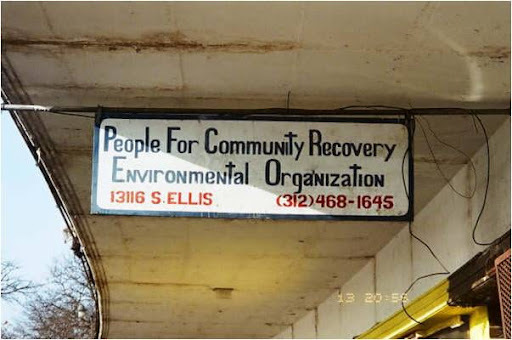
PCR successfully stopped Chicago Public Schools from demolishing of the historic C Building at Altgeld Gardens. Staff and advocates educated city officials on the importance and historical significance of the building (Altgeld’s first school) as well as the community as a whole, given the legacy of PCR’s founder, Hazel Johnson. More than 500 community residents spoke out in support of the campaign. This work contributed to the decision by the City of Chicago Commission on Landmarks to vote in favor of adding Altgeld Gardens to the national register of historic places.
Community-Driven State Energy Legislation: Climate and Equitable Jobs Act
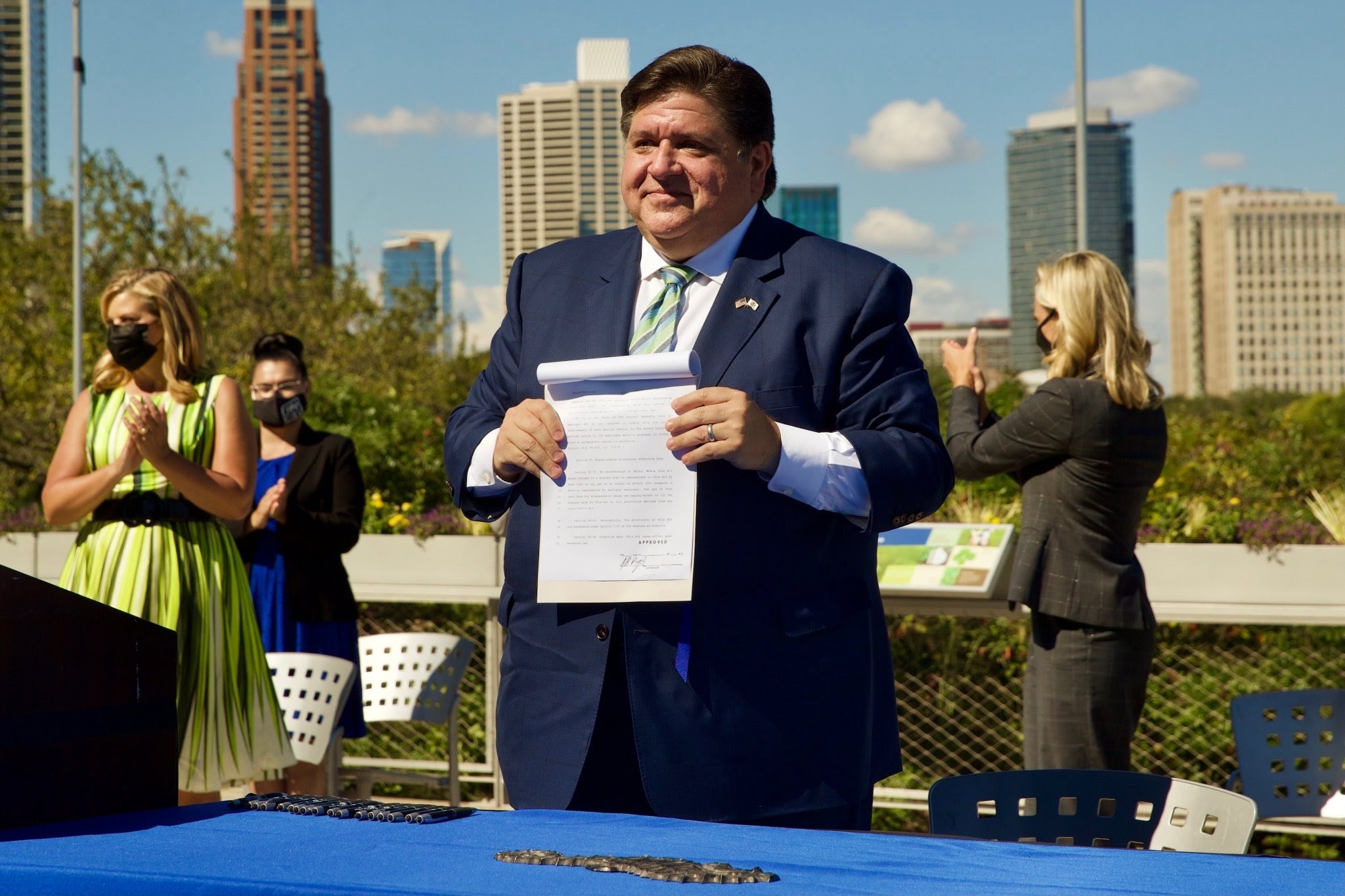
For more than three years, PCR and EJ organizations from across the state, and allies met with communities to create, negotiate and pass legislation that was representative of our community-based needs and fights. PCR held more than 25 events, educated more than 1,500 people and mobilized 400 residents and our local elected officials in town hall events, trips to Springfield and in-district meetings in support of the Climate and Equitable Jobs Act. Cheryl Johnson was heavily involved in drafting the workforce equity provisions of the bills, based on PCR’s expertise. The Climate and Equitable Jobs Act was signed into law by Governor J.B. Pritzker in September 2021. The legislation creates the groundwork for a Just Transition for Illinois, phases out coal and natural gas in EJ communities and brings the promise of new jobs in solar and wind with emphasis for people of color.
Cumulative Impacts
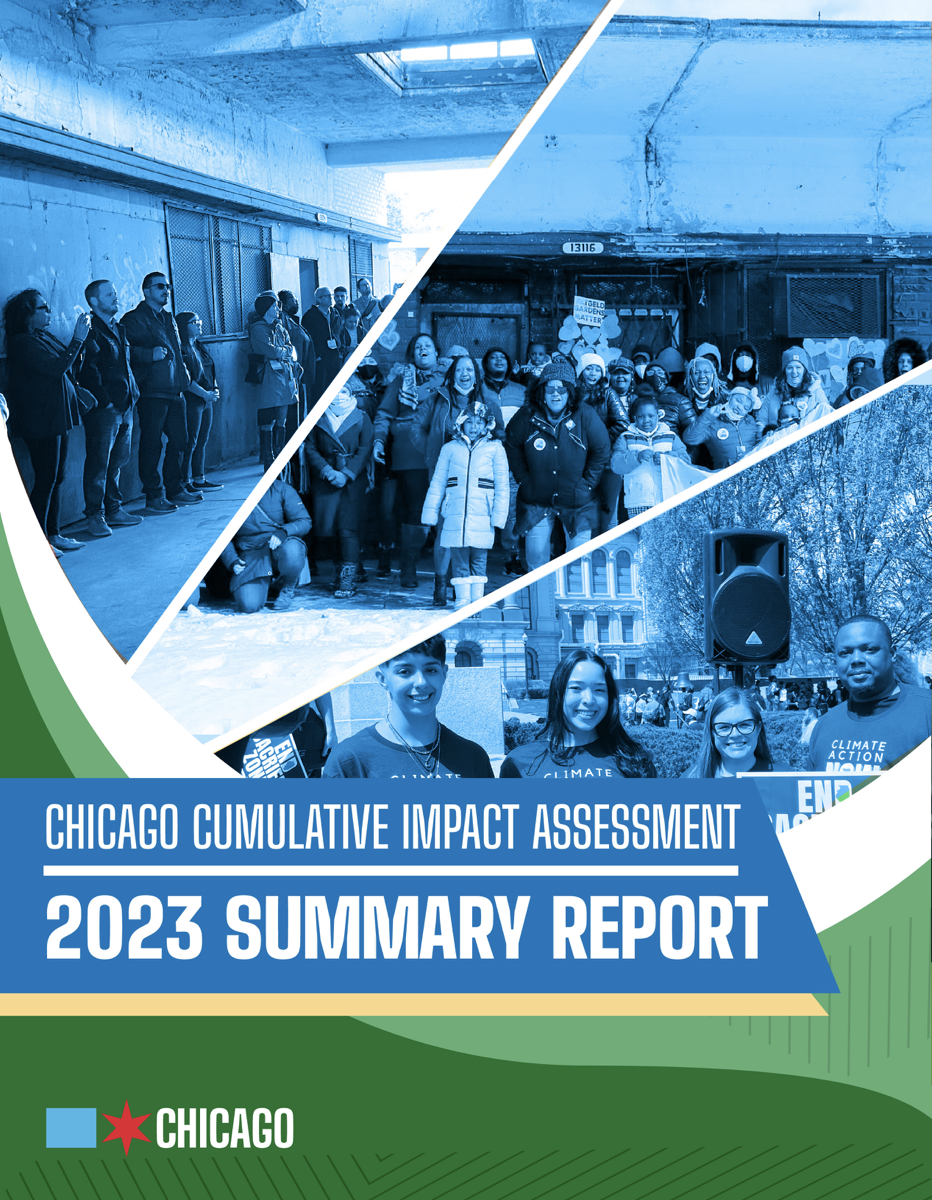
In September 2023, PCR, EJ allies and the City of Chicago leaders released the findings and recommendations from a 15-month process to develop Chicago’s first Cumulative Impact Assessment, a citywide project to provide data on how environmental burdens and other stressors vary in impact across the City. This historic achievement came out of a settlement agreement with the City of Chicago and the Department of Housing and Urban Development (HUD) after PCR and Southeast Environmental Task Force initiated a first-of-its kind civil rights complaint against HUD over Chicago’s land use and zoning practices. The agreement now requires the City to overhaul the policies that shape communities that have long been seen as sacrifice zones for industry.
Revitalizing the Historic C Building
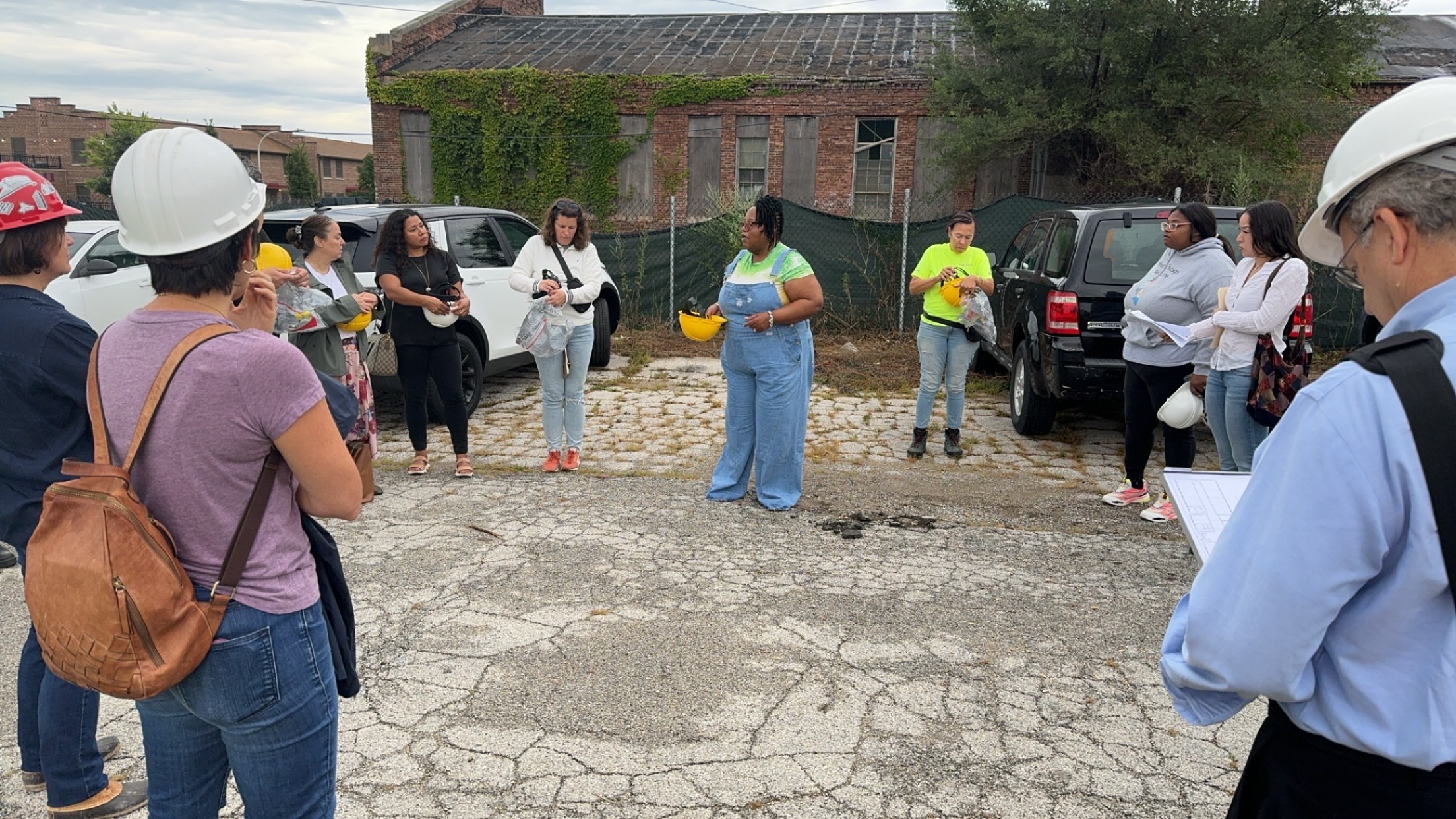
In 2021, People for Community Recovery successfully stopped Chicago Public Schools from its planned demolition of the historic C building at Altgeld Gardens. PCR's vision is to restore the C building into an Environmental Justice center for the far South Side community. Late August 2024, PCR was granted ownership of Building C in Altgeld Gardens on the far South Side of Chicago from Chicago Public Schools’ Board of Education.
While we’ve reached a crucial milestone, our work continues. Named after PCR’s founder and resident of Altgeld Gardens, known internationally as the mother of the environmental justice movement, PCR plans to restore the building into a sustainable community center that will serve as a community resilience hub, remediation and renewable energy job training center, and host youth educational and after school programming, community events and more.
We need your support to continue our work to restore Building C into the Hazel M. Johnson Institute for Sustainability and Environmental Justice.

Ways to Support Us
Volunteer
There's lots of work to do to continue our fight against environmental racism. Connect with us to volunteer.
Donate
Every dollar helps continue our work fighting for environmental justice. Donate now to support us!
Learn more
Learn more about Hazel Johnson's legacy and PCR's history through the Help this Garden Grow podcast. Available on all podcast streaming platforms.
